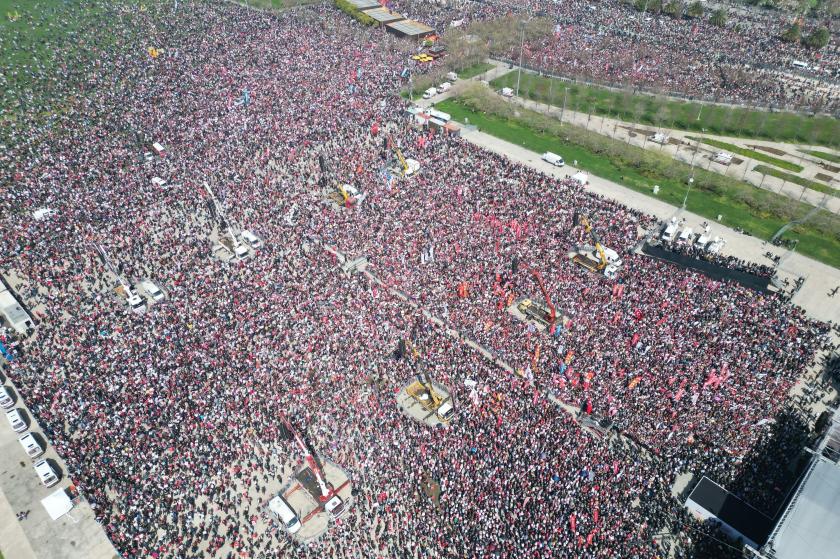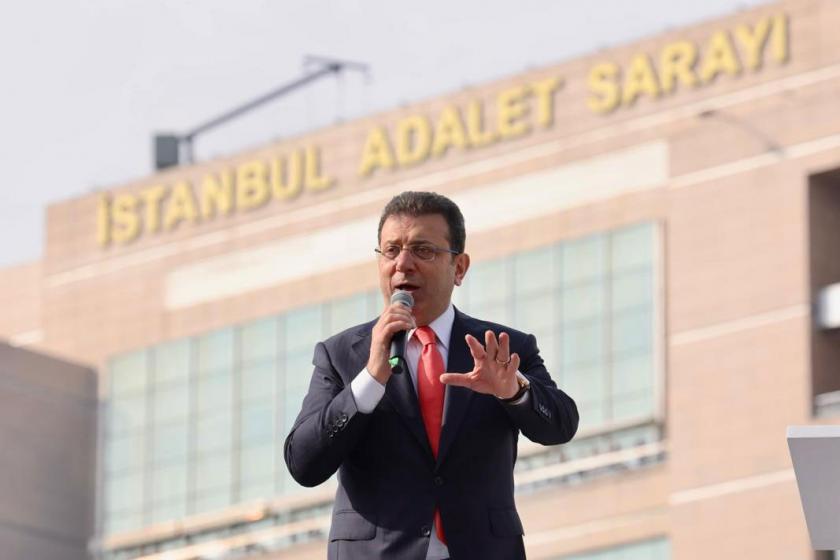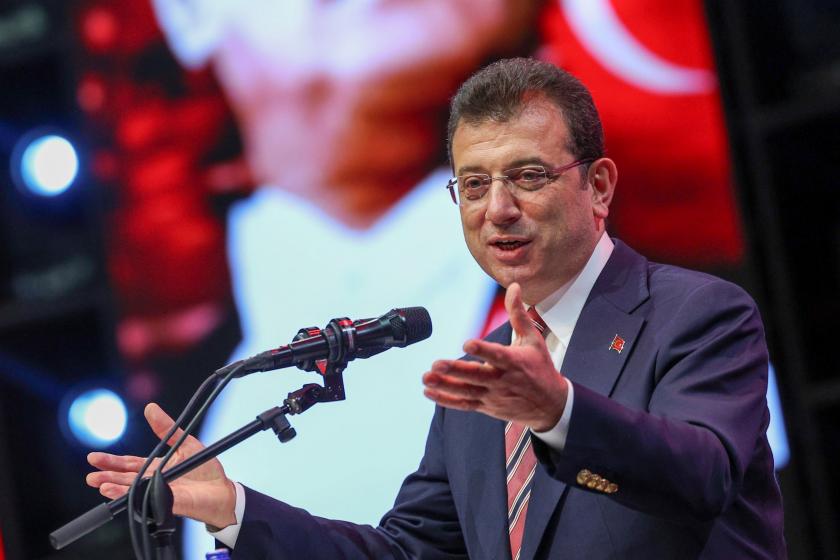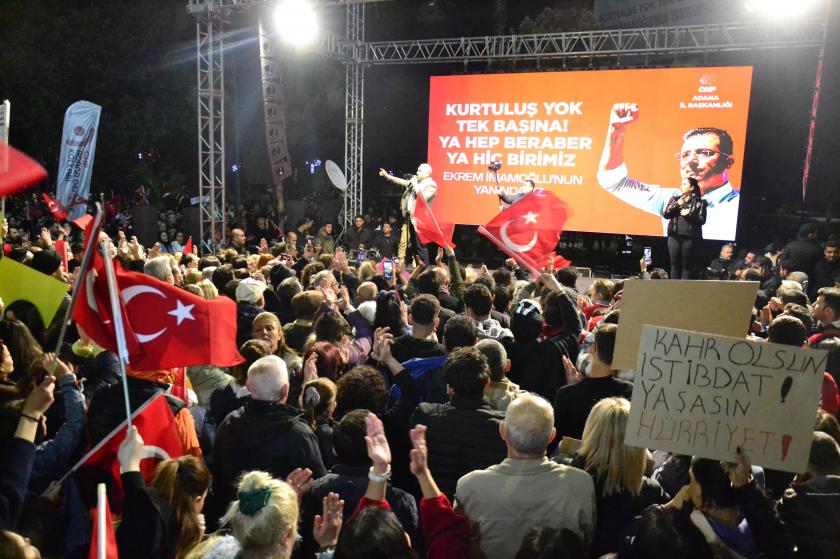Turkey Elections | Don't give up hope, don't run away from confrontation

Fatih Polat

Fotoğraf: DHA
The 2023 elections were elections in which the opposition could not reflect the breathing space it had hoped for on the results at the level it desired. We lived through an election period in which Tayyip Erdoğan and his party used the state facilities to the fullest, and in which slander campaigns based on montage to wear down the opposition were made from the rally squares and defended on the screens. In many respects, it was an election that was breathless.
On 14 May, as a result of the parliamentary elections, the People's Alliance, despite having gained the majority in the Parliament with the opportunities provided by the new electoral law it imposed on itself, fell 7 points compared to the previous election. Erdoğan also failed to win the presidential elections in the first round, using all state means.
Considered together with the results of 28 May, there are some things to think about both in terms of the overall picture of the election and its consequences for the opposition.
Erdoğan had won the 2018 presidential elections in the first round with 52.59 per cent. In the 2023 elections, when 99.17 per cent of the ballot boxes were opened in the second round on 28 May, he had received 52.08 per cent of the votes.
Kemal Kılıçdaroğlu, the opposition candidate, increased his vote from 44.88 per cent in the May 14 election to 47.92 per cent in the May 28 election. When 100 per cent of the ballot boxes are counted, there may be slight differences in these percentages.
After the results on 14 May, Kılıçdaroğlu increased his support by showing an energetic performance despite the difference and his age. We should record this as a plus point.
We should also note that a broad opposition front, including leftist and socialist parties, which will not have any representation in the parliament in the new term, fought a struggle that cannot be underestimated in terms of protecting the ballot boxes.
In short, although the opposition was disappointed in the first days after the result on 14 May, which was also caused by the expectation of winning in the first round, it made a significant effort in the last ten days.
All this should be noted in the hope column.
On the other hand, in addition to Izmir, where the opposition was already ahead, it is also important that this position was maintained in Istanbul and Ankara, where Kılıçdaroğlu finished ahead in the 14 May elections.
In Bursa, one of the industrial cities where the People's Alliance is strong, Erdoğan increased his vote from 51.47 per cent on 14 May to 54.66 per cent by around 3 points, while Kılıçdaroğlu increased his vote from 40.61 per cent on 14 May to 45.34 per cent on 28 May, by almost 5 points. The change in Bursa's labour-dominated districts such as Nilüfer, Gemlik and Osmangazi was also at these rates.
In Gebze, one of the industrial centres of Kocaeli, Erdoğan increased his vote from 57.1 percent in the first round to 60 percent. Kılıçdaroğlu, on the other hand, increased his vote from 35.7 per cent to 40 per cent. The change in Kocaeli was also in line with this. Erdoğan's vote increased from 54.3 to 57 per cent and Kılıçdaroğlu's vote increased from 38.7 to 43 per cent.
In Ümraniye, another district of Istanbul where seven industrial estates are located and AKP is strong, Erdoğan increased his vote from 51.92 percent on 14 May to 53.72 percent, while Kılıçdaroğlu increased his vote from 42.93 percent on 14 May to 46.28 percent. In other words, Kılıçdaroğlu increased 2 points more than his rival in this district in the second round.
Before the second round elections, the Nation Alliance's discourses on refugees, 'fight against terrorism' and 'trustees' in order to gain the support of the Victory Party were discussed and concerns that this path in terms of vote maths might lose the Kurdish voters in the base of the People's Democratic Party (HDP) and the Green Left Party (YSP) came to the fore. In this regard, the clear stance of the HDP and Green Left Party leadership and the imprisoned HDP co-chair Selahattin Demirtaş against Erdoğan was very important.
We can say that this attitude and the Kurdish electorate's insistence on change were to a large extent reflected in a disciplined manner at the ballot box on 28 May. However, it cannot be denied that there were also relative differences. For example, in Ağrı, Kılıçdaroğlu's vote dropped from 65.8 per cent to 65.34 per cent, while Erdoğan's vote increased from 31.72 per cent to 34.66 per cent. However, also in Tunceli
Kılıçdaroğlu's vote increased from 80.26 percent on 14 May to 82.81 percent on 28 May. A small portion of Sinan Oğan's 3.41 per cent of the first-round vote, believed to have belonged to civil servants and security officers from outside the city, also went to Erdoğan. Erdoğan increased from 16.2 per cent to 17.19 per cent.
In Diyarbakır, Kılıçdaroğlu's 71.96 per cent of the vote on 14 May dropped slightly to 71.61 per cent. Erdoğan's share of the vote in this city increased from 26.48 percent on May 14 to 28.39 percent.
In Siirt, Kılıçdaroğlu's vote share dropped from 56.26 percent on May 14 to 55.44 percent on May 28. Erdoğan's share of the vote in this city rose from 41.55 percent on May 14 to 44.56 percent.
Within the scope of this article, it is necessary to emphasise that the opposition should continue its struggle with hope for change. On the other hand, it would not be correct and meaningful for the opposition to explain the result only with the government's use of state facilities and various tricks. The opposition needs an accounting that should never escape.
It is clear that the government's propaganda, both political and economic, continues to have an effect on a considerable part of the labouring masses, the masses of the people. As people become poorer and poorer, to the extent that they cannot be convinced of an opposition option that they can fully trust, they may cling to the government as the 'lesser of two evils'.
The fact that the Nation Alliance sees no harm in incorporating 'more nationalist' discourse into its own discourse in the hope of overtaking the government in the second round may have harboured the expectations of those who wanted to see it as a hope in other respects. We can say this for some Kurdish voters. For the labouring masses in general, the rhetoric and propaganda he put forward may have been found confusing due to its sometimes divergent and sometimes identical aspects with the discourse of the government.
Beyond these, with which policies is it really possible for the opposition to gain strength and is it right to move forward? Undoubtedly, the forces of the Labour and Freedom Alliance, rather than the Nation Alliance, will have much more work to do in the coming period.
{{491020}}






Follow Evrensel